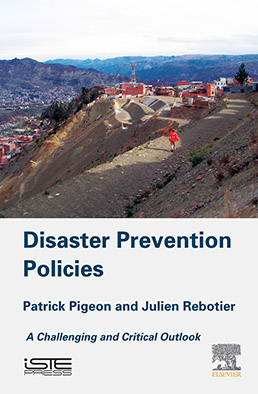
This book addresses disaster risk reduction (DRR) policies, focusing on reducing the paradox that exists between the compulsory implementation of DRR policies and continuing limitations
The authors use their knowledge of the ever-evolving threats associated with disasters and their prevention to investigate this famous paradox and propose solutions that will help readers understand and reconsider its existence.
The authors also discuss conditionings behind this paradox, helping readers understand the existing solutions, also suggesting how to reduce the limitations of DRR policies.
Part 1. Disaster Prevention Policies: Paradoxical and Ambiguous Assessments.
1. The Rise in Knowledge and Policies Suggest an Increase in Disasters.
2. The Contributions to Disaster Prevention are Difficult to Assess.
Part 2. Understanding and Managing Disaster Risk: The Multiple Limits of Specialized Approaches.
3. The Limits of Understanding Disasters.
4. The Limits of Disaster Prevention: Returns on Management Experiences.
Part 3. Why and How Does the Prevention of Disasters Necessitate Thinking and Acting in an Imperfect World?
5. The Principle of Cognitive Limits: Its Application to Disaster Prevention.
6. Bridging the Gap between Disaster Prevention and Environmental Concerns.
7. Reflections upon the Contribution of Social Geography to Disaster Prevention.
8. How Can We Best Manage Disasters?
Patrick Pigeon lectures in Geography at the University of Savoie-Mont-Blanc in France. His research focuses on geomorphology and risks geography.
Julien Rebotier is a researcher at the SET Laboratory of CNRS in Pau, France. His research interests include social and political geography of the environment and political ecology discourses.